Applications for Ohio Farm Bureau Health Plans now available
Members have three ways to apply: contacting a certified agent, calling 833-468-4280 or visiting ohiofarmbureauhealthplans.org.
Read MoreOn this episode of Legal with Leah, Senior Director of Corporate Communications Joe Cornely discusses what farmers and landowners should do if they have taken prevent plant payments and their land is in the Current Agriculture Use Value program.
Joe Cornely: We may not know the official statistics until the end of the crop year, but suffice to say that this may be the lowest amount of planted acreage in Ohio since, I don’t know, we were farming with mules. The latest data probably says as much as half of the corn, maybe a third or a quarter of the beans never got in the ground this year. And a lot of farmers took prevented planting payments as their opportunity to offset a little bit of that loss. How does that impact that land as it applies to current agricultural use valuation? As always we turn to our legal expert Leah Curtis in the studio. She’s Farm Bureau’s policy counsel. So if I took prevented planting, did I just automatically remove my ground from CAUV?
Leah Curtis: Probably not. The law for CAUV allows for anyone who’s been in the program or had their land devoted exclusively to agricultural use for at least three years to have what we call a fallow year. So the law basically says that you can let that land lay fallow for one year. They cannot take you off CAUV for that and there won’t be any penalty for doing so.
Joe Cornely: It makes me nervous when a lawyer says, “probably.”
Leah Curtis: Well, a lawyer always has to say probably (laughter). I say probably because if you weren’t in the program, if you weren’t in CAUV before this year then you can’t take the fallow year and get in to CAUV. You have to have that three years of of CAUV participation, then you can take your fallow year.
Joe Cornely: So what do I need to do if this applies to me and I want to make sure I’ve got all my bases covered.
Leah Curtis: So technically the law doesn’t require you to do anything, but as a best practice we always suggest that you talk to your auditor. Let them know that, I mean they’re probably aware of the weather and what has been happening, but let them know ‘Hey I did take my prevented planting claim this year. I’m going to let that land lay fallow.’ You should also keep track of your documentation in case the auditor would need it next year when you file your application. But this just puts the auditor on notice.
Leah Curtis: If someone comes out to do the inspection and they don’t see anything and they’ve always seen corn or beans there before, they know ‘Oh yeah that person already told us they weren’t able to plant this year.’
Joe Cornely: And by telling the auditor, what do you recommend — a letter, an email, a phone call?
Leah Curtis: You know as a lawyer it’s always best to do it in writing of some sort. So you know an email, a letter is great either way. But stopping in and asking them to document it in the office would be fine, too. Most are as I said most auditors are probably aware of the situation and they’re going to be trying to help you out with this.
Joe Cornely: On the subject of CAUV we haven’t brought this up in a while but we rocked. We had a lot of success over the years and it culminated a couple of years ago in some reforms to the way we value farmland and it continues to pay off for our members.
Leah Curtis: Yeah. So this will be the third year of our phase in. So this is the last set of counties that will see the first part of the CAUV reforms. Next year, we’ll start the full phase in of the reform. That means everything’s going to be fully phased in. And we’ve even seen reports out of OSU that have confirmed that we’ve seen significant savings for our landowners through those CAUV reforms and they anticipate that those savings will continue as we see that full phase in coming in next year.
Joe Cornely: The number we had been using is roughly 30%.
Leah Curtis: Yeah. So roughly 30% on average is what we’ve seen as the decrease in the values for CAUV. Now of course your tax rate may change what that means for your individual property, but certainly we’ve seen those values drop about 30 percent on average for cropland.
Joe Cornely: Farm Bureau policy counsel Leah Curtis.


Members have three ways to apply: contacting a certified agent, calling 833-468-4280 or visiting ohiofarmbureauhealthplans.org.
Read More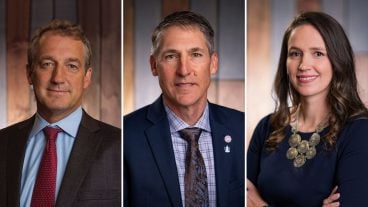
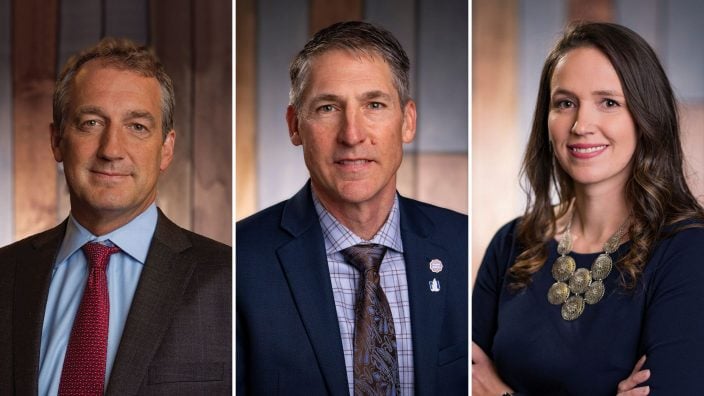
Bill Patterson, Cy Prettyman and Adele Flynn will continue to serve as officers for Ohio Farm Bureau Federation.
Read More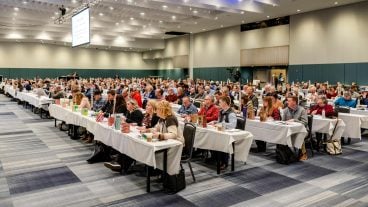
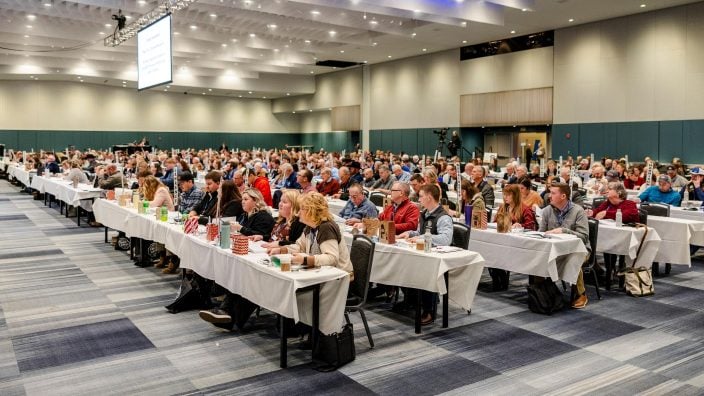
Delegates discussed many topics impacting agriculture including farmland preservation, local foods, and succession planning.
Read More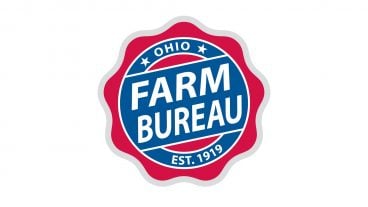
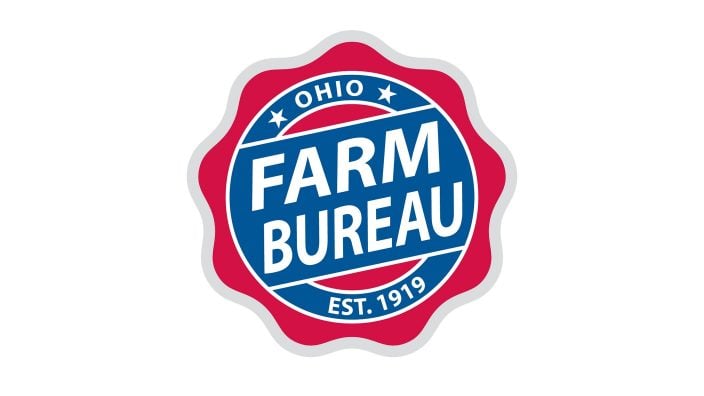
Twenty-six farmers govern the state’s largest farm and food organization.
Read More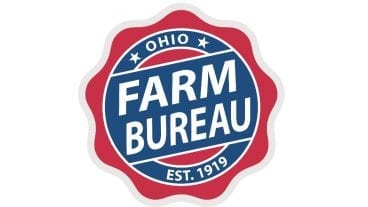
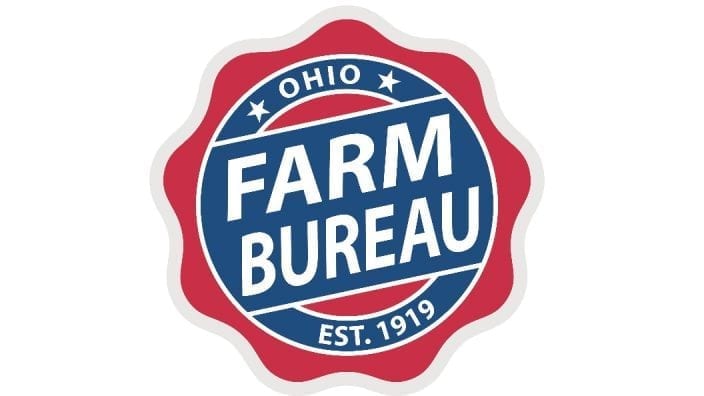
The 2025 recipients are Fred Cooke (posthumous) of Richland County, Marvin Dietsch of Williams County, Steven Knollman of Hamilton County and Michele Miller (posthumous) of Ottawa County.
Read More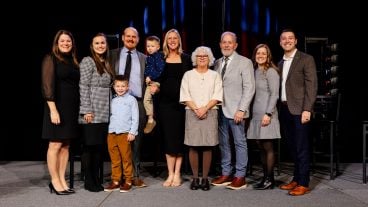
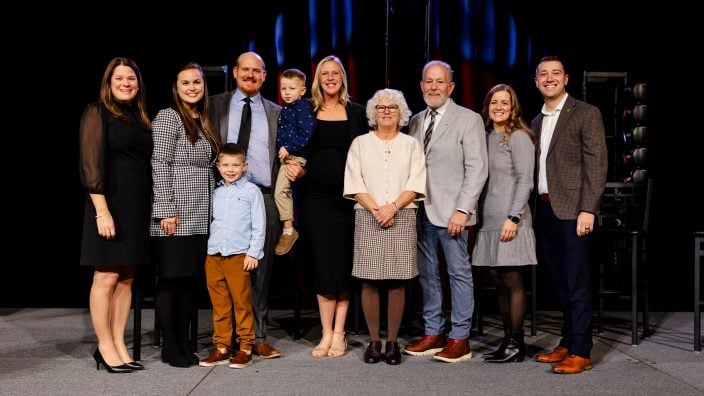
Nathan and Jill Parriman grow seasonal crops, including Christmas trees, pumpkins and cut flowers, providing U-cut experiences that invite customers to engage directly with agriculture.
Read More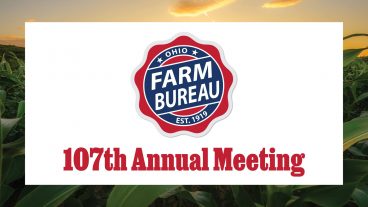
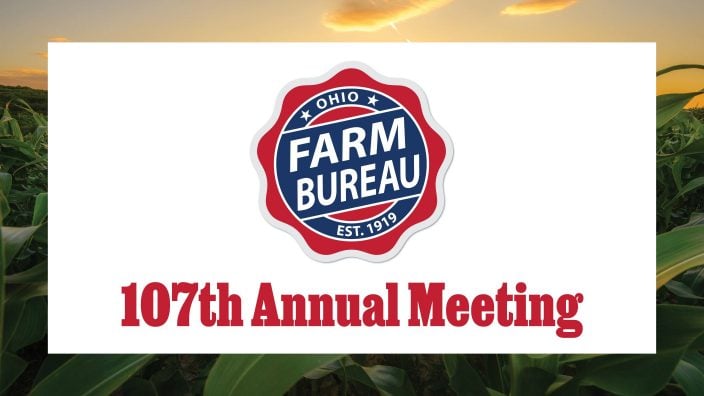
The 2025 Distinguished Service Award recipients are Craig Adams, Mike Townsley, and Kellogg Farms, Kurt Farms and Stateler Family Farms.
Read More
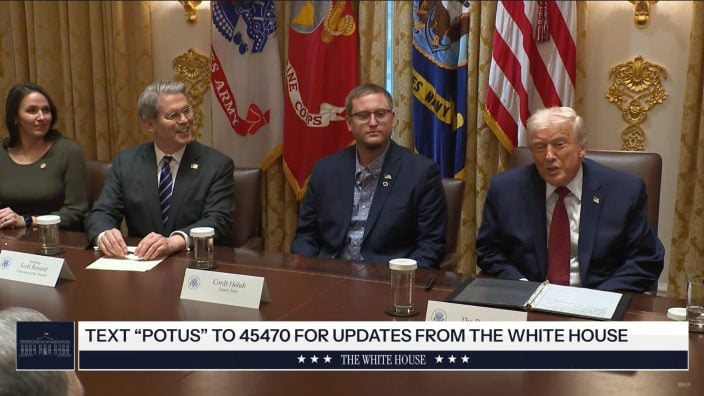
Ohio Farm Bureau Treasurer Adele Flynn participated in the meeting, representing Ohio farmers.
Read More

For Ohio and PJM region, the outlook is reassuring—ample reserves and strong planning should keep the power on.
Read More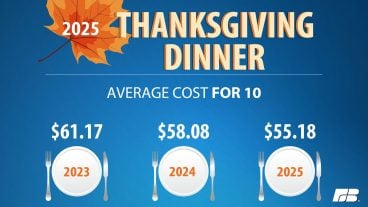
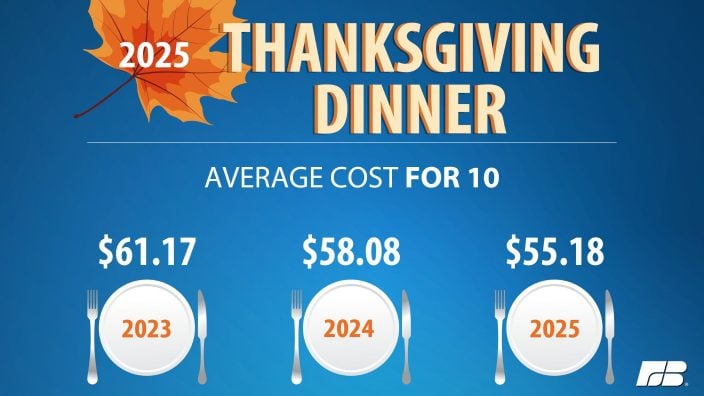
The average price for a classic holiday feast for 10 in Ohio will cost $55.87.
Read More